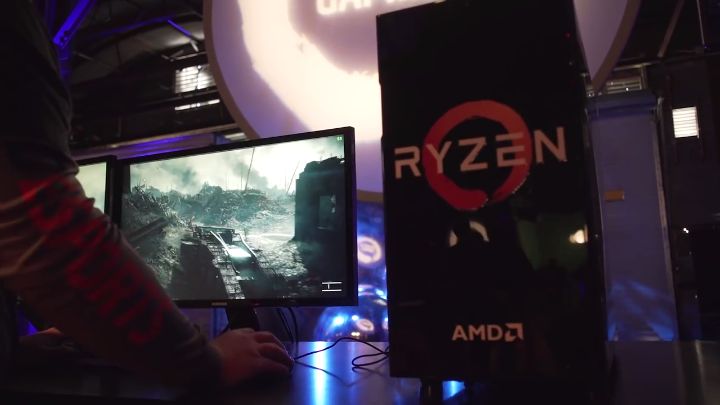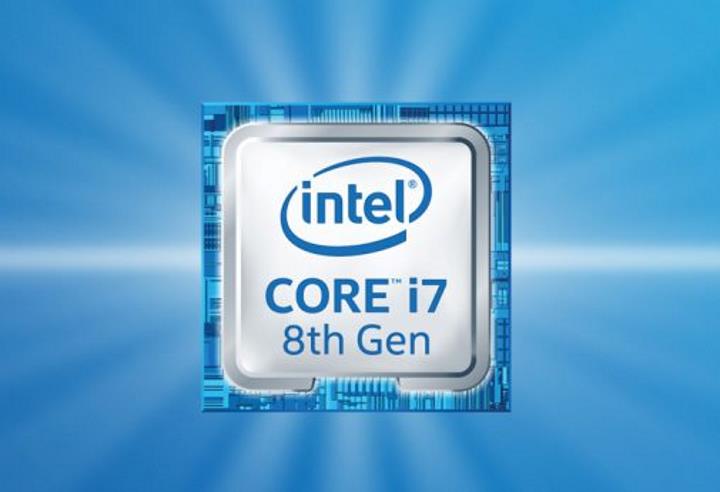One of the year’s top bit of news in the PC arena no doubt was the launch of AMD’s Ryzen processors. The reason was that, for the first time in years, AMD had launched a processor series which could rival Intel’s world-conquering Core series when it came to performance.
This is a situation we have not seen in the technology arena since 2005, when AMD introduced the first 2 core processor and was getting the better of Intel when it came to raw gaming performance. Things changed when Intel launched its hugely successful Core series back in 2006, though, and AMD has been losing market share to the Santa Clara company since then.
But now we are once again at a point in which the company headed by Lisa Su is once again competing with Intel when it comes to raw processor performance, meaning those who are planning to upgrade their gaming PC now have more choices than ever to do so.
Things became even more complicated last month when Intel launched its new Coffee Lake processor series, debuting a series of CPUs that offer unprecedented performance, at least when it comes to gaming.
And the star of Intel’s Coffee Lake line-up undoubtedly was the new Core i5-8400, a 6-core processor that offers a significant performance boost over Intel’s previous Kaby Lake generation, even coming close to Intel’s previous flagship the i7-7700K.
The thing is, though, that the i5-8400 is not widely available even now, and there is a shortage of stock worldwide meaning it has been pretty hard to get hold of Intel’s latest and greatest processor until now.
Actually, some have even accused Intel of doing a “paper launch” with Coffee Lake, getting their latest processor line to market ahead of schedule in order to put a brake on AMD Ryzen sales (which truth be told, has been doing phenomenally well to date if recent reports are to be believed).
You see, Intel had originally scheduled Coffee Lake to launch in January 2018, but was forced to perform a U-turn and get the new SKUs to market sooner in other to compete with AMD’s Ryzen.
And given the scarce availability, it’s not surprising that many retailers have been marking up the price of Intel’s 8th generation CPUs, meaning it’s hard to get processors like the i5-8400 at anything close to Intel’s recommended customer price (which is $182 US dollars), if at all.
This is disappointing taking into account that some outlets like PC Gamer have given the i5-8400 sterling reviews, with most reviewers agreeing this is currently the best processor available for gaming and that Intel’s CPU is one step ahead of AMD’s 6-core competitor, the Ryzen 5 1600, when it comes to running the latest games.
But given the scarce availability of Intel’s Coffee Lake series, it makes sense that those looking to upgrade right now have been tempted to plump for AMD’s option instead. Also, another reason to discard the Coffee Lake option right now is the fact that only high-end motherboards (those based on Intel’s Z370 chipset) are available right now, with the more affordable boards featuring the B360 and H370 chipsets shipping early next year.
This makes going for a Ryzen 5 1600 and one of AMD’s cheap as chips B350 boards a compelling option right now, especially taking into account that the Ryzen 5 is no slouch when it comes to gaming, and it does outpace the Core i5-8400 for productivity use overall according to most benchmarks out there. Also, AMD has vowed to maintain the AM4 processor socket until 2020, branding this as a “future proof” option on its website.

AMD took a giant step with Ryzen, but Intel is still king of the hill when it comes to gaming though.
How future proof AM4 actually is, though, is something that is open to debate, and reading AMD’s small print the statement regarding future compatibility says this only actually applies to 14nm processors. And given the fact that according to some sources AMD will be launching its next iteration of the Ryzen series as early as next year, and that the new Ryzen 2000 processors will be based on 12nm technology, there is a possibility that current boards won’t be able to run these latest CPUs.
Actually, I personally wouldn’t bet much on forward compatibility from either AMD or Intel right now, especially taking into account that for the first time in more than a decade both companies are locked in a performance war, with both releasing or planning to release new processor series in less than a year (AMD’s Pinnacle Ridge refresh will reportedly launch as early as February 2018).
Also, motherboard longevity in general is something of a moot point. I’ve personally never upgraded my processor without changing the motherboard too, a move that makes sense in order to have a board that features the latest technological standards to support a new processor purchase.
So given the shifting technological landscape, I would say the best option right now is to wait, unless you absolutely need to upgrade your current PC right now. This is because early next year AMD will be launching its new 400s series motherboards which will surely be a more future proof option to build an AMD-based system.
Also, cheap motherboards for Intel’s 8th generation processors will be hitting the market at around this time too, finally making processors like the i5-8400 a great value for money proposition and a great upgrade too.
Because the truth is that despite AMD’s big jump with Ryzen, Intel remains to better option for gaming right now. Proof of this is in the system requirements for blockbuster games like Destiny 2 or Call of Duty: WWII, which show that game developers continue to favour Intel.
Actually, the recommended Intel processor to run the PC version of Call of Duty: WWII is a Core i5-2400 (which came out back in 2011) or an AMD Ryzen 5 1600X. The latter in theory is the much more capable CPU, this being evidence of the fact that developers are not investing much resources in optimizing for AMD’s Ryzen (and given that AMD commands less than 30 % of the desktop processor market right now, it remains to be seen if they ever will).
So, an Intel CPU continues to be the favoured option for gaming, then, and I would say that even going for an i5-7400 could be a better option than plumping for processors such as the Ryzen 5 1600. Although clearly the preferred choice for a pure strain gamer is to hold out until the i5-8400 is widely available, even if one has to pair this CPU with one of the more expensive Z370 motherboards available right now.
It’s clear, though, that if AMD somehow manages to get the new Ryzen 2000 series processors to market before the cheap Coffe Lake boards hit the retail circuit in 2018, then Intel will surely be in an uncomfortable position, I’m sure you’ll agree.
Because AMD could yet shock everyone next year with their new Ryzen 2000 series and definitely steal the gaming crown from Intel, while it is true that one can wait forever in order for the latest and greatest tech to come out. In this case though, a little patience sure is advised, and given that things are moving so fast in the CPU world right now, waiting for both AMD and Intel to show their cards early next year might be the better course of action right now.
Core i7 8th gen, Coffee Lake presentation (Intel Corporation)
AMD New Horizon video (YouTube)

